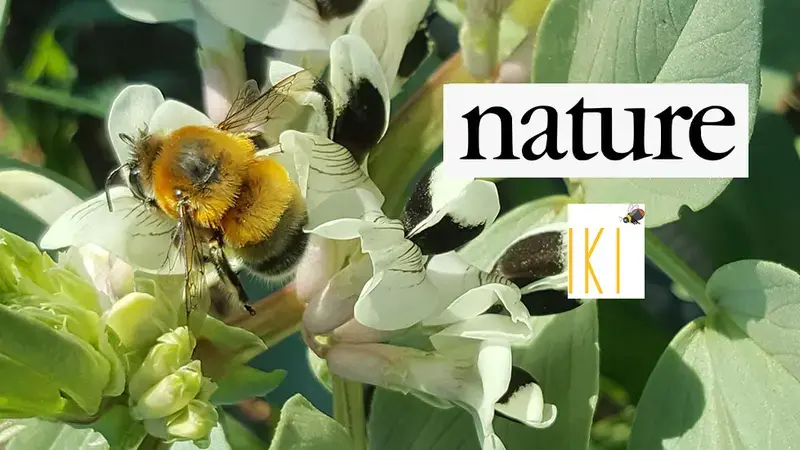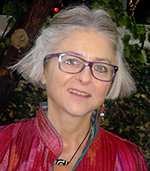Pollinator protection strategies must be feasible for all nations

A recent article By Dr. Stefanie Christmann in Nature.com on pollinator protection shows the urgent need to focus research activities on low- and middle-income countries who cannot afford available schemes.
Wild pollinators are indispensable for biodiversity, agriculture, climate change adaptation, and all ecosystem services. Yet human activities through agriculture and changing land-use cause devastating pollinator decline. Having already foreseen the risks this triggers, high income countries subsidize farmers to seed pollinator-friendly wildflower strips along their fields. Low- and middle income (LIC and MIC) cannot afford such costly schemes.
Stefanie Christmann, ICARDA’s Farming with Alternative Pollinators (FAP) Team Leader, has spent a decade developing a wild pollinator protection approach feasible for LIC/MIC countries. The scheme was piloted in Uzbekistan, later in Morocco and five more countries. The approach was presented at Conference of the Parties - Convention on Biological Diversity 2018 (COP - CBD 2018) and at the World Biodiversity Forum in Davos in 2020. Dr. Christmann’s FAP project focuses on economic assessments demonstrating the net additional income per surface induced by habitat enhancement for pollinators based on marketable plants (oil seeds, spices, food crops, etc.) instead of wildflowers and pollinator nesting support.
Secondly, she focuses on policymakers and explains how 87% of all flowering species require pollinators for regeneration and their loss causes reduced yields, a rapid decline of plant diversity, a critical reduction of the ecosystem services they provide, leading to poverty spirals. Dr. Christmann also highlights why such worst-case scenarios need to be widely avoided and explains to farmers and policymakers how to prevent such spirals.
Dr. Christmann also points out how a better understanding of the economic value of pollinators can incentivize farmers to use the FAP-approach of seed strips of marketable habitat enhancement plants to increase their yields. Further, her proposed cross-sector policy mix allows LIC and MIC to protect pollinators for very low cost. Given the chance to flourish, FAP could also be attractive to the global development sector by significantly contributing to key UN Sustainable Development Goals.

Dr. Stefanie Christmann is ICARDA's Senior Scientist, and Farming with Alternative Pollinators Team Leader.
ICARDA’s Farming with Alternative Pollinators project is made possible by funding and support from the German Federal Ministry for the Environment, Nature Protection and Nuclear Safety (BMU), currently within the International Climate Initiative.

